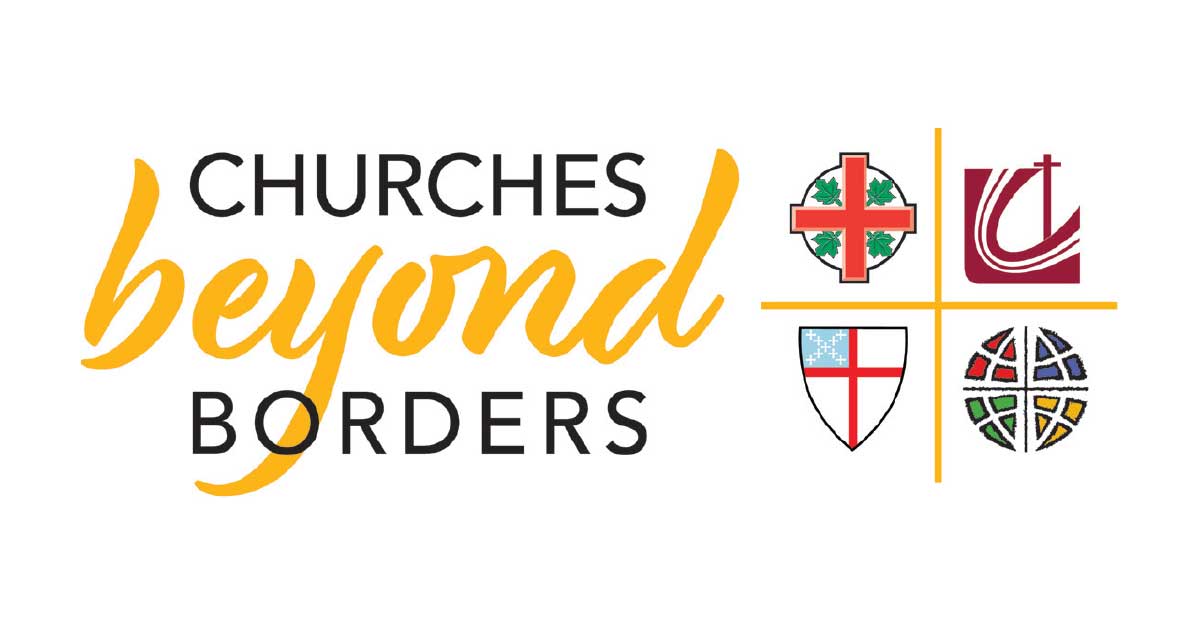From Churches Beyond Borders: Evangelical Lutheran Church in Canada, Anglican Church of Canada, The Episcopal Church and the Evangelical Lutheran Church in America
In Advent 2020, Churches Beyond Borders expressed a commitment to dismantling racism, combating white supremacy and actively seeking opportunities to engage more deeply on these important issues. In this season of Lent, we continue our journey as we join together in observing the International Day for the Elimination of Racial Discrimination. This is an annual day of recommitment in remembrance of the day police in Sharpeville, South Africa, opened fire and killed 69 people at a peaceful demonstration against apartheid “pass laws” in 1960. Recognizing that the March 21 International Day for the Elimination of Racial Discrimination is a calling to be lived out every day, we offer this reflection as encouragement to continue the journey with renewed determination.
I have observed the misery of my people who are in Egypt; I have heard their cry on account of their taskmasters. Indeed, I know their sufferings, and I have come down to deliver them (Exodus 3:7–8a, NRSV)
How do we lament the sin of racism?
Racism and xenophobia have a painful, violent, deadly history that traverses all borders. The institutional church shares in the complicity of the legacies of the Doctrine of Discovery colonization, forced removal and genocide of Indigenous people, the enslavement of African and Indigenous Peoples and injustices perpetrated against all people of color. The sin of racism is structural, institutional, interpersonal and internalized. It lives in communities inside and outside the church; it continues to inflict harm on a daily basis and generate new history. How do we repent of all of this?
At the burning bush, Moses hears God say, “I have heard the cries of my people.” We who follow the God of Freedom must also hear the cries of God’s people, of each other, and especially those among us who live under the constant threat and violence of racism and white supremacy. For those of us who have the privilege of closing ourselves off, we need to open ourselves to feel the painful truths of the sins of racism and white supremacy in our hearts and bodies and minds and souls. We must create spaces and structures that welcome and include the voices of those most directly impacted by the sins of racism. This message is being shared during the season of Lent, a period of self-examination, reflection, and making amends. We need to lament, repent and be transformed.
Moses is told to take off his sandals. We need to lament in worship: to remove our shoes, to stand in humility, to feel the ashes on our foreheads, to be honest in the presence of God about our sins and shortcomings. Holy Ground is a gift that supports lamentation, repentance, transformation and discernment.
Moses is sent to work for the freedom of people. Oppression is not inevitable or insurmountable. Things can change. Challenging racism and white supremacy calls each of us to deep and honest consideration of perceptions, biases,behaviours and systemic patterns. We echo the United Nations call to take the strongest possible stand against racism, discrimination and intolerance of every kind, to spread the word to fight racism and to take stock of the state of human rights and hate speech today and reflect on how each of us can stand up for rights. In lamentation and repentance, we hear God’s call to act for the dismantling of racism.
Moses admits his own fears and reluctance. God directs Moses to connect with his siblings. God provides Miriam and Aaron to make up for Moses’ weaknesses and to enhance his strengths. The journey is long and the work is hard, crossing many difficult borders in our lives, communities, and our churches. We give thanks for the gift of community on this journey and in this work.
We invite you to join us in prayer:
God of Holy Ground, move us to lament and repent. Open our hearts, bodies, minds and souls to the cries of your people. Transform us by your presence. Drive us into action for the dismantling of racism in relationships, communities and societies. Bless us with companions who support us, challenge us and help us keeping going. We pray for the Elimination of Racial Discrimination. In the name of Jesus. Amen.
We commend to you these resources for further reflection and discernment:
- Suggested action from the United Nations High Commission for Human Rights to #FightRacism
- Explanation of the Declaration of the ELCA to People of African Descent
- “Doctrine of Discovery: Stolen lands, Strong Hearts” is a film about a devastating decision, made over 500 years ago, which continues to profoundly impact Indigenous and Settler people worldwide.
- Call to Racial Reconciliation: “Litany of Repentance” and “Commissioning for the Ministry of Justice and Reconciliation” from the “10th Anniversary Celebration of Full Communion” between the Episcopal Church and the Northern and Southern Provinces of the Moravian Church
- “With Love Before Us, We Are Walking” recoding of Gospel Jam 7 (February 13, 2021) with Archbishop MarkMacDonald and special guest Bishop Michael Curry
- ELCA Anti-Racism Pledge
- Episcopal Church Report for the House of Bishops from its Theology Committee: White Supremacy, the Beloved Community, and Learning to Listen (Fall 2020)
- Anglican Church of Canada House of Bishop’s Statement on Confronting Racism
- Evangelical Lutheran Church in Canada Pastoral Letter regarding the ongoing sin of Racism.
In Christ — Shalom,
![[signed] +Susan C Johnson](https://assembly.anglicanlutheran.ca/wp-content/uploads/Susan-Johnson-Signature.jpg)
National Bishop Susan C. Johnson
Evangelical Lutheran Church in Canada
![[signed] +Linda Nicholls](https://assembly.anglicanlutheran.ca/wp-content/uploads/nicholls-sig_black.png)
Archbishop and Primate Linda Nicholls
Anglican Church of Canada
![]()
Presiding Bishop Michael B. Curry
The Episcopal Church
![[signed] Elizabeth Eaton](https://assembly.anglicanlutheran.ca/wp-content/uploads/eaton-signature.png)
Presiding Bishop Elizabeth A. Eaton
Evangelical Lutheran Church in America


